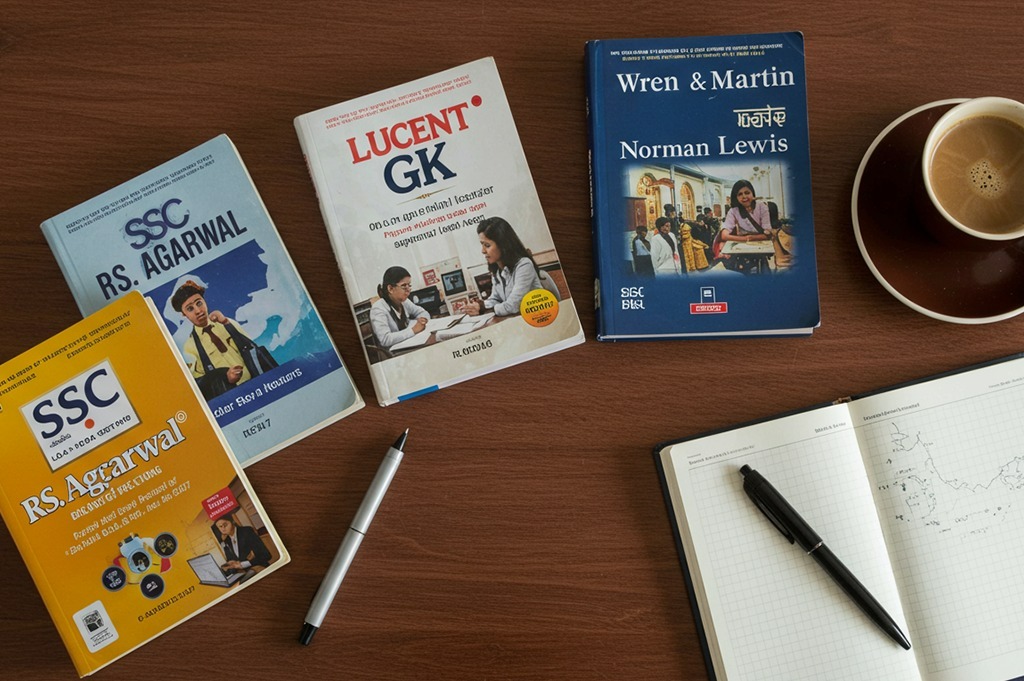Did you know that over 30 lakh candidates appear for SSC exams yearly? But only 2 – 3% manage to secure their dream government job. The Staff Selection Commission conducts some of India's most competitive exams for recruiting talent to various posts across central government ministries and departments. With lakhs of aspirants from states like Uttar Pradesh, Madhya Pradesh, Bihar, Rajasthan, and Delhi, having the right SSC exam strategies can make all the difference between success and another attempt.
The journey to cracking Combined Graduate Level (CGL), CHSL, MTS, or state-level government exams isn't just about hard work; it's about working smart. Recent data shows that candidates who follow a structured preparation strategy are five times more likely to clear these exams compared to those who study randomly. This guide will walk you through proven methods, essential study materials, and tips that successful candidates have used to crack the government exams.
Key Takeaways for SSC Exam Success
- Start your exam preparation at least 6 – 8 months before the exam date.
- Practice previous year question papers and mock test series regularly to build speed and accuracy.
- Stay updated with general awareness and current affairs daily for at least 60 – 90 minutes.
- Join online communities or study groups for doubt clarification.
- Maintain a balance between study hours and rest to ensure proper time management and avoid burnout.
Building Your SSC Strategy: The Foundation Phase
Step 1: Understanding the SSC Exam Pattern and Syllabus
Before diving into exam preparation, every aspirant must first understand the exam pattern and syllabus. Each exam (CGL, CHSL, MTS, GD Constable, etc.) has a specific format, ranging from Tier-I and Tier-II objective papers to descriptive tests.
Key Points to Remember:
- Tier-I: Objective MCQs covering General Intelligence, Quantitative Aptitude, English, and General Awareness.
- Tier-II: Advanced sections of Math and English Language, along with General Studies.
Time management and accuracy are crucial at every stage. When building your SSC exam strategies, ensure you start with complete awareness of the syllabus. Download the latest official syllabus from the Staff Selection Commission website and mark topics based on your strengths and weaknesses.
Step 2: Collect the Right Study Materials
Quality matters more than quantity when it comes to study materials. Some book suggestions are mentioned below:
For Quantitative Aptitude: RS Aggarwal's Quantitative Aptitude, Rakesh Yadav's Class Notes, and Arun Sharma's books.
For Reasoning: MK Pandey's Analytical Reasoning and RS Aggarwal's Reasoning books are considered the standards.
For English: Wren & Martin for grammar basics, SP Bakshi’s Objective English, and Word Power Made Easy by Norman Lewis for vocabulary and grammar improvement.
For General Awareness: Lucent's General Knowledge, monthly current affairs magazines like Pratiyogita Darpan, and Manorama Yearbook.

For state-level exams, invest in state-specific books that cover local history, geography, culture, and current developments.
Step 3: Building a Smart SSC Preparation Schedule
Consistency is the key. Following a SSC CGL preparation strategy that balances all subjects and regular revision will show better results than long, unfocused study hours.
Here’s how you can create a weekly SSC timetable:
- Morning (2 – 3 hours): Quantitative Aptitude Section and General Intelligence practice.
- Afternoon (2 hours): English Grammar and vocabulary, and grammar exercises.
- Evening (2 – 3 hours): General Awareness + Reading newspapers
- Night (1 hour): Revision and short quizzes.
Tip: Use productivity tools or apps like Notion or Google Calendar to stick to your study schedule.
Mastering Time Management During Preparation
One of the most crucial points of your SSC exam strategies is mastering time management, both during preparation and in the actual exam. Practice solving questions under time-based conditions from day one.

For SSC CGL Tier-I, you get approximately 50 seconds per question. Practice speed math tricks, learn reasoning shortcuts, and improve reading speed for comprehension passages.
Smart Revision Techniques:
- Maintain a short notebook of formulas, key facts, and current affairs.
- Use the Pomodoro technique (25 minutes study, 5 minutes break).
- Dedicate one day per week only to revision.
- Review mock test errors and reattempt the same questions after 2 - 3 days.
A balanced SSC strategy ensures equal importance is given to preparation and revision.
Mock Tests, Practice Papers, and Analysis
Practicing through mock test series and previous year's papers is one of the most effective components of any SSC exam strategy. These familiarize you with the question pattern, improve speed, and boost confidence.
Follow This Process:
- Attempt at least 2 full-length mock tests weekly.
- Analyze performance and identify weak areas.
- Revise topics where your score falls below 60%.
- Gradually increase your accuracy to 85 – 90%.
Pro Tip: Treat mock tests as real exams to build confidence and reduce anxiety during the actual SSC exam.
Subject-Wise Strategy for SSC CGL and Other Exams
Quantitative Aptitude:
Mathematics often separates successful candidates from the rest. Start with basics: ensure your multiplication tables, squares, cubes, and basic formulas are at your fingertips. Then progressively tackle topics in this order: Simplification, Percentage, Ratio & Proportion, Average, Time & Work, Time & Distance, Profit & Loss, Simple & Compound Interest, Algebra, Geometry, Trigonometry, and Data Interpretation.
Practice at least 50 questions daily from each topic until you achieve 90% accuracy within the time limit.
General Intelligence & Reasoning:
Reasoning is the easiest section to score if you understand the patterns. Focus on Analogies, Coding-Decoding, Blood Relations, Direction Sense, Seating Arrangement, Syllogism, and Statement-Conclusion questions. Visual reasoning becomes easier with practice, so don't skip non-verbal reasoning sections.
English Language:
Many vernacular-medium students find English tough, but with the right exam preparation methods, it becomes manageable. Start with grammar rules, expand your vocabulary and grammar, and practice reading comprehension daily.
Watch English news channels, read newspapers, and try thinking in English; these habits will strengthen your English Language skills.
General Awareness:
This section demands consistent daily effort. Dedicate 30 – 45 minutes every morning to reading newspapers, noting government schemes, awards, and sports events.
Create monthly current affairs notes and revise them weekly. Use flashcards for quick revisions of key facts and dates.
Create monthly current affairs notes and revise them weekly. For G.K., use flashcards for quick revision of important facts, dates, and personalities.
Essential Resources and Tools for Success
Online Platforms and Apps
Several platforms offer preparation packages: Adda247, Oliveboard, Testbook, and Gradeup provide quality mock tests, video lectures, and study materials.
YouTube Channels for Free Learning
Quality education doesn't always require expensive coaching. Channels like Study IQ Education, Examपुर, SSC Adda, and Dear Sir offer excellent-level free content covering all SSC exam subjects.
Building a Support System
Join Telegram groups, WhatsApp study circles, or online forums to share notes and attempt questions collaboratively. However, maintain discipline and avoid excessive social media distractions.
The Final Month Strategy
As exam day nears, shift focus entirely to revision and mock test practice. Attempt one full-length mock test every alternate day and work on weak sections. Revise formula sheets, notes, and general awareness facts daily.
Create a one-day mind map for each subject: A compact summary of essential formulas, facts, and quick tips to revise before the exam.
Mental Health and Motivation
Maintaining a healthy mindset is just as important as studying.
Practical Tips to Stay Motivated:
- Take short breaks to avoid burnout.
- Engage in physical exercise or meditation.
- Surround yourself with positive peers or online study groups.
- Reward yourself for small achievements.
Remember, the journey of cracking SSC exams is not a sprint but a marathon.
Conclusion
Cracking both state and national-level SSC exams demands a focused preparation strategy, smart time management, and disciplined effort. Aspirants across India have proved that success is achievable with the right study materials, mock test practice, and dedication.